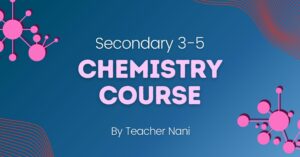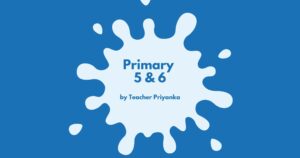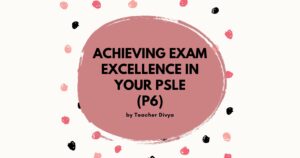- The Particulate nature of matter
- Experimental techniques
- Atomic structure and bonding
- Stoichiometry
- Electricity and Chemistry
- Acids, bases and salts
- The periodic table
- Metals
- Organic Chemistry
YOU CAN EXPECT YOUR CHILD TO:
- After studying Particulate nature of matter the child should know and understand the following terms: solid, liquid and gases, kinetic theory, boiling point, melting point, Diffusion.
- After studying experimental techniques child should know and understand the following items: distillation,evaporation,fractional distillation , crystallisation, miscible and immiscible liquid, chromatography (paper).
- After studying atomic structure and bonding, child should understand inside atoms, ionic bonding, covalent bonding (+allotropy), glasses and ceramics, metallic bonding. After learning stoichiometry, child should understand relative atomic masses, reacting masses, calculating moles, calculating formulae, moles and chemical equations.
- After studying electricity and chemistry, child should understand electrolysis of the following: Lead bromide Aluminium oxide Aqueous solutions Concentrate hydrochloric acid Copper sulphate solution Child will also learn about electroplating and electrolysis guidelines.
- After studying acids, bases and salts, child will understand acids and alkalis, formation of salts, crystal hydrates, solubility of salts in water, titration.
- After learning the periodic table, child will understand development of periodic table, electronic structure and periodic table, transition elements, the position if hydrogen and different groups: Group I- alkali metals Group II- alkali earth metals Group VII- halogens Group 0- noble gases
- After learning metals, child will understand metal reactions, decomposition of metal nitrates, carbonates, oxides and hydroxides, reactivity of metals and their uses, identifying metal ions, discovery of metals and their extraction, metal waste, rusting iron, alloys.
- After learning organic chemistry , child will understand alkanes and alkenes, chemical behaviour of alkanes and alkenes, alcohols, biotechnology, carboxylic acids, soaps and detergents , condensation polymers, some biopolymers.
- The Particulate nature of matter
- Experimental techniques
- Atomic structure and bonding
- Stoichiometry
- Electricity and Chemistry
- Acids, bases and salts
- The periodic table
- Metals
- Organic Chemistry
YOU CAN EXPECT YOUR CHILD TO:
- After studying Particulate nature of matter the child should know and understand the following terms: solid, liquid and gases, kinetic theory, boiling point, melting point, Diffusion.
- After studying experimental techniques child should know and understand the following items: distillation,evaporation,fractional distillation , crystallisation, miscible and immiscible liquid, chromatography (paper).
- After studying atomic structure and bonding, child should understand inside atoms, ionic bonding, covalent bonding (+allotropy), glasses and ceramics, metallic bonding. After learning stoichiometry, child should understand relative atomic masses, reacting masses, calculating moles, calculating formulae, moles and chemical equations.
- After studying electricity and chemistry, child should understand electrolysis of the following: Lead bromide Aluminium oxide Aqueous solutions Concentrate hydrochloric acid Copper sulphate solution Child will also learn about electroplating and electrolysis guidelines.
- After studying acids, bases and salts, child will understand acids and alkalis, formation of salts, crystal hydrates, solubility of salts in water, titration.
- After learning the periodic table, child will understand development of periodic table, electronic structure and periodic table, transition elements, the position if hydrogen and different groups: Group I- alkali metals Group II- alkali earth metals Group VII- halogens Group 0- noble gases
- After learning metals, child will understand metal reactions, decomposition of metal nitrates, carbonates, oxides and hydroxides, reactivity of metals and their uses, identifying metal ions, discovery of metals and their extraction, metal waste, rusting iron, alloys.
- After learning organic chemistry , child will understand alkanes and alkenes, chemical behaviour of alkanes and alkenes, alcohols, biotechnology, carboxylic acids, soaps and detergents , condensation polymers, some biopolymers.
Teacher Reena is a graduate of MSc Chemistry. She has 4 yrs. teaching experience for secondary students. Now, she's teaching private for IB, IGCSE students but can also teach the following curriculum (Primary school science ,Secondary school science and CBSE Chemistry.
There are no reviews yet.
Ask a question about this course
Pro-rated pricing is available for ongoing courses. The price is calculated based on the number of available upcoming classes.
For example, an ongoing course may comprise of 8 classes, however 2 classes were held beforehand, and 6 are upcoming classes that are available to purchase. You will not be charged for the previous 2 classes, only the 6 upcoming classes.
The current number of classes available for purchase depend on the upcoming dates listed in the course schedule.
Short Courses
Our shorts courses are designed to help children to pick up skills and knowledge within a short time frame. Teachers conducting short courses may meet 1 or more times each week, across 1 to 4 weeks.
Ongoing Courses
Ongoing courses are meant for children to study a certain subject under the same teacher. Ongoing classes meet weekly (up to 5 times a month) / alternating weeks (up to 3 times a month) depending on your teacher’s schedule.
Classes can be booked upfront in the following timeframes: Per lesson, Monthly (4-5 weeks), Termly (10 weeks), Yearly (up to 52 weeks)
We will be rolling out such courses soon, do stay tuned!
Free trial eligibility
A free trial class is available to new students who have not attended this course. Limited seats, first come first serve basis only.
What happens after a free trial?
If you are satisfied with the free trial session, you may proceed to purchase more classes to continue this course.
Can I choose my own session dates?
As all of our courses are in a group class setting, teachers have already committed to a certain timeline for each group.
Each course has upcoming course dates displayed under the schedule tab, do check the course schedule before signing up. Some classes may have more than one schedule. In such cases, if you are not able to attend lessons in schedule 1, you can still attend classes in schedule 2.
Hardware
A personal computer/tablet device, speakers and a microphone – built-in, USB plug-in, or wireless Bluetooth, a webcam or HD webcam - built-in, USB plug-in.
Internet Connectivity
An internet connection – broadband wired or wireless (3G or 4G/LTE). 50-150kbps (download speeds).
Software
An email to sign up and create an account. Zoom installed.
We accept PayNow for local payments and Visa, Mastercard and American Express for local and international payments.
Yes we do! All our classes are 100% online, so you can join a class from anywhere in the world.
Please note that all our class schedules and timings are in Singapore Standard Time (GMT +8).
Similar Courses
Share this Course
Join the Learner Net Community






Be the first to review “Cambridge IGCSE Chemistry”